 |
| Effective implementation of the Law on Teachers is a practical step to improve the quality of education . (Photo: Pham Thanh Thuy) |
In the context of fundamental and comprehensive innovation in education and training, creating a transparent, modern and adequate legal environment for teachers is a strong commitment of the State to those who shoulder the mission of "cultivating people".
Before 2025, although the role of teachers has always been emphasized in legal documents, Vietnam still does not have a specific law that comprehensively regulates teachers. Therefore, the passage of the Law on Teachers (June 2025) by the 15th National Assembly is an important milestone in the process of institutionalizing the human development strategy. This is not only a law on the profession, but also a profound affirmation of the value and role of teachers in the cause of national development.
Professionalizing the teaching profession
The Law on Teachers not only fills the long-standing legal gap, but also opens a new era for the professionalization of the teaching profession in Vietnam.
First of all, the law affirms the independent legal status of teachers. For the first time, teachers are removed from the “shadow” of the Civil Servants Law and the Education Law to become separate subjects of regulation. This is a major institutional step forward, demonstrating the view that education is not only a public service, but also a special field that requires high standards of ethics, capacity and dedication. Teachers are not simply “knowledge transmitters”, but are the central subjects of the human development ecosystem.
Second, the law represents a breakthrough in the policy of protecting and rewarding teachers. In the context of the teaching profession increasingly facing pressure from society, the media and community expectations, clearly defining the responsibility to protect the honor and dignity of teachers is a profound humanistic highlight. At the same time, the law expands the allowance policy according to the characteristics of the profession, region, working conditions and family circumstances. Establishing the highest salary position for teachers in the administrative - career sector is a strong affirmation that: Honoring teachers cannot stop at words.
Third, the Law on Teachers focuses on continuous professional development, instead of the previous “once-for-life learning” model. Professional standards are no longer formal but are shaped as a tool for managing the quality of the team. Teachers have the right to lifelong learning, are encouraged to participate in scientific research, international cooperation and innovation in teaching methods. Thereby, forming a team of teachers who are proactive in learning, creative and adaptive.
Fourth, the law somewhat approaches international standards on the teaching profession. Teachers now not only “stand in class” but also lead students to explore the world, form their personalities, and nurture their aspirations.
Overcoming challenges, building trust
However, the process of putting the law into practice still faces many challenges.
Firstly, many provisions in the law are closely linked to policies on wages, budgets and public finances – which are currently subject to regulation by other legal systems such as the State Budget Law, the Civil Servants Law and incomplete regulations on wage reform. This makes some of the incentives and support policies in the law difficult to implement in practice.
Second, the capacity to implement the law in many localities is still uneven, especially at the commune level - where primary and secondary schools are directly managed. Without specific guidance, adequate training and a strict monitoring mechanism, the law is at risk of falling into a state of "hot above - cold below".
Finally , some important contents such as the process of assessing professional standards, professional training policies or the mechanism for mobilizing and rotating teachers are still framework-based and need to be specified by decrees and guiding circulars.
For the Law on Teachers to truly come into life and be effective, many solutions need to be synchronously deployed.
First, it is necessary to promptly issue full implementation guidance documents, especially decrees on salary regimes, recruitment, assessment of professional standards and professional training.
At the same time, it is necessary to organize extensive and systematic training for educational management staff, principals, teachers and district and commune management agencies to raise awareness of the reform spirit that the law aims for: placing teachers at the center, developing professional capacity, enhancing autonomy associated with accountability.
A fundamental solution is to build a comprehensive digital data system on the teaching staff, from professional records, periodic assessment results to training and transfer processes. Data needs to be updated regularly, interconnected, ensuring transparency, modernity and efficiency.
In addition, it is necessary to strengthen the role of social and professional organizations, especially teachers' associations, in criticizing and monitoring policies. Practice from teachers will help bring policies closer to actual needs.
Finally, the implementation of the law needs to be linked to a roadmap for salary reform and improved working conditions for teachers. The policy will be difficult to promote if teachers still face low incomes, lack of public housing, high professional pressure without appropriate support mechanisms. Special priority should be given to preschool teachers and teachers in remote areas – where there are difficulties in recruiting and retaining quality human resources.
Effective implementation of the Law on Teachers is a practical step to improve the quality of education, build social trust and inspire future generations of teachers.
Source: https://baoquocte.vn/luat-nha-giao-geo-chu-bang-phap-quyen-319772.html





![[Photo] General Secretary To Lam attends the 80th anniversary of Vietnam's diplomacy](https://vphoto.vietnam.vn/thumb/1200x675/vietnam/resource/IMAGE/2025/8/25/3dc715efdbf74937b6fe8072bac5cb30)









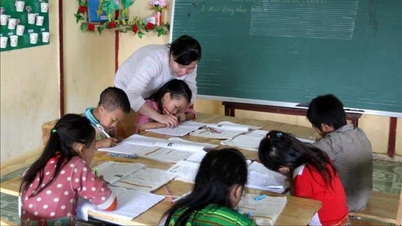








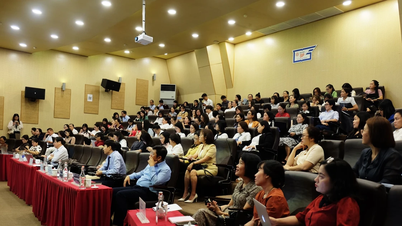








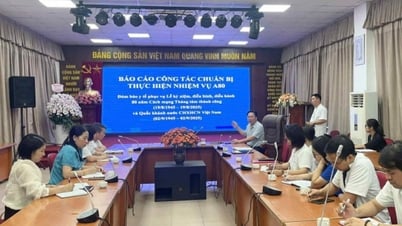



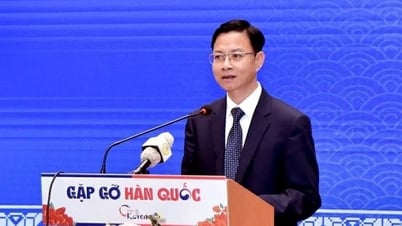





































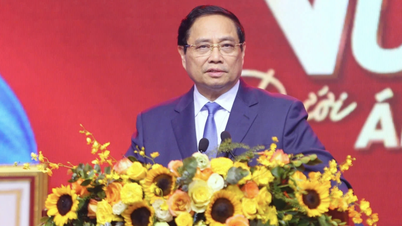





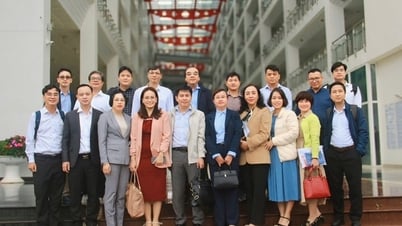




























Comment (0)